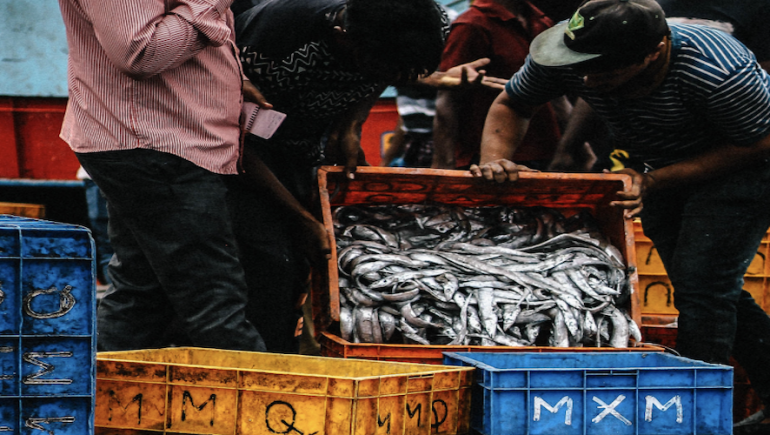By Annabelle Spence
Blockchain is best known as the technology behind cryptocurrency phenomenon Bitcoin, but its potential applications extend far beyond the realm of finance.
Developed by an elusive figure known only by the pseudonym Satoshi Nakamoto, blockchain is an electronic database which chronologically records a series of transactions or exchanges.
Details of these transactions are instantaneously shared between all computers involved in a transaction chain, commonly known as ‘nodes’.
All nodes in the chain have access to all transaction data, allowing its validity to be established by consensus. Thus, attempts to tamper with the data will be rejected by other nodes in the chain.
Blockchain transactions provide transparency, as all transaction records are available to all users accessing the system.
The adoption of blockchain technology is increasing, with some estimating 70% of global markets will have a direct or indirect dependence on the system by 2025.
The ability of blockchain technology to provide transparent, accurate and up to date records has direct implications for the protection of human rights.
Giving consumers access to data tracking the source of products provides them with the tools to make ethical choices and provides brands with the impetus to ensure they do not perpetuate human rights abuses.
This article will explore how industries such as food, garment and natural resources are working to implement blockchain technology to combat human rights abuses in their supply chains.
Food
Blockchain technology has applications for eradicating human rights abuses in the agriculture and food processing industries.
Fishing
The fishing industry, especially in Southeast Asia, is facing increasing scrutiny following reports that fishermen and seafood processing workers are subjected to significant human rights abuses.
Provenance has launched a program to track tuna, which will ensure it is ethically caught by fishermen who work for reasonable wages, in reasonable conditions.
Fishermen register each catch via SMS, which generates a unique ID for that catch and adds it to the blockchain.
NGOs in the region provide evidence of fishermen’s working conditions. Consumers can access all this information by scanning barcodes or QR codes marked on a product’s packaging.
Other foods
Like fish, blockchain technology can be used to track the supply of other fresh and processed foods and certify products as ethical and fair trade.
Provenance has developed other means of monitoring food supply chains, including a scheme to track fresh produce from farm to supermarket shelf in real time, ensuring accuracy of claims about source and quality.
Garment Industry
The fashion industry has faced criticism for failing to provide sufficient information about conditions and wages in its factories, and the sources of raw materials used.
However, the use of blockchain technology in the form of QR codes or Near-Field Communication (NFC) tags, which allow customers to access an app which provides data about a garment, will create greater transparency in the fashion industry.
Available data can include a garment’s source, the composition and source of fabric, authenticity (especially for designer brands) and even customer reviews.
A partnership between Provenance and designer Martine Jarlgaard, which tracks raw materials used in her garments, is an example of the potential successes of blockchain in the fashion world.
Natural Resources
Human rights abuses experienced by workers in the natural resources sector may be addressed by blockchain technology.
Diamonds
De Beers Group, a leading diamond producer, has recently announced a project to use blockchain technology to track diamonds, guaranteeing they are authentic, ethically sourced and have not been sourced from conflict zones where they could be used to finance violence.
Companies such as Everledger have pioneered programs for tracking valuable assets such as diamonds, meaning there is significant scope for the expansion of projects like that of De Beers to other gems and valuable resources sourced from areas of conflict, or in conditions that may perpetrate human rights abuses.
Cobalt
Cobalt has been the subject of a pilot program to combat human rights abuses in its supply chain.
Exploitation and child labour have been identified as significant issues in the industry, and Amnesty International and African Research Watch published a report indicating the failure of electronic and automobile companies to combat these practices.
A pilot scheme to be launched this year will attempt to use blockchain technology to record all actors along the supply chain, and verify that each bag of cobalt has been artisinally produced, without the use of child labour.
Where to now?
In an age where awareness of the importance of purchasing ethical products is increasing, blockchain technology will likely become an increasingly integral part of the lives of responsible consumers.
However, its application as a tool for combatting human rights abuses also lies beyond consumer industries, and includes fields such as intellectual property, land title, humanitarian aid and fair elections.
Annabelle Spence was the Australian Human Rights Institute Student Intern in Semester 1, 2018.
